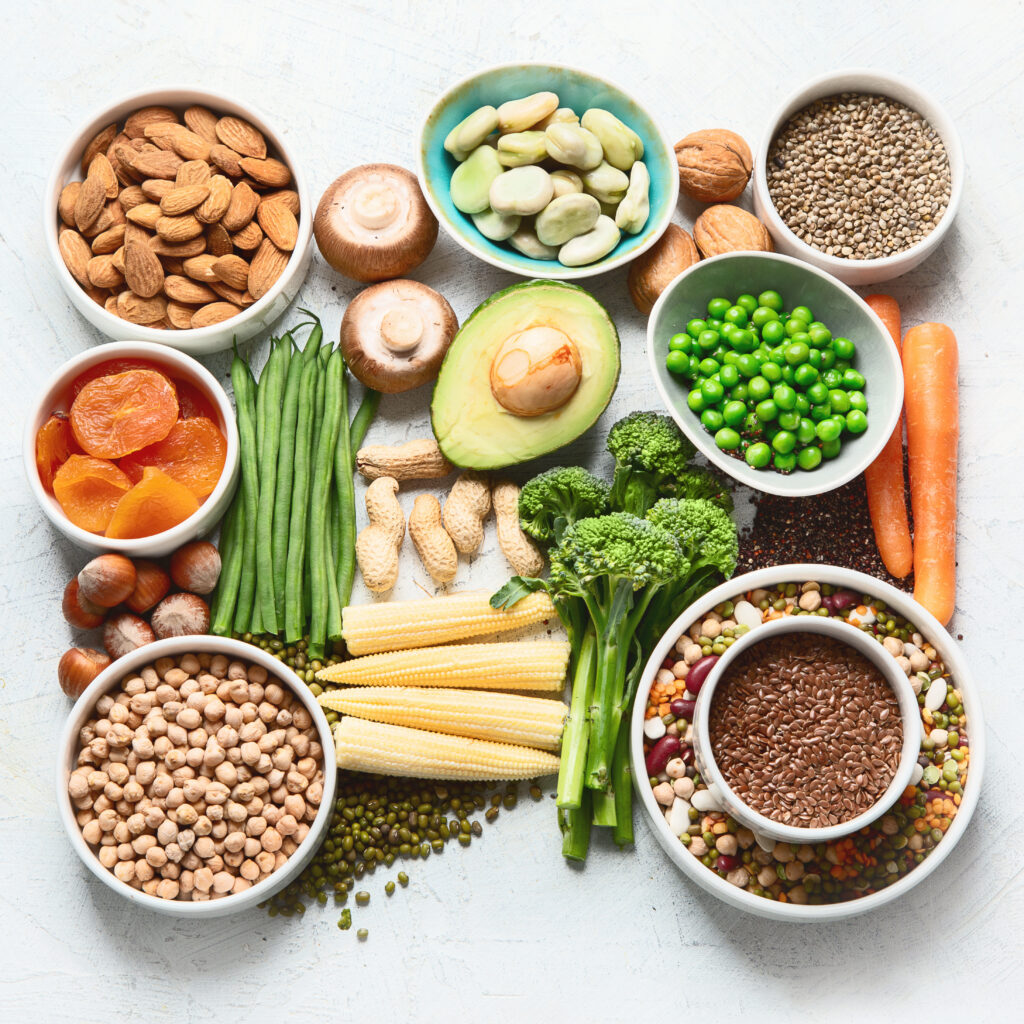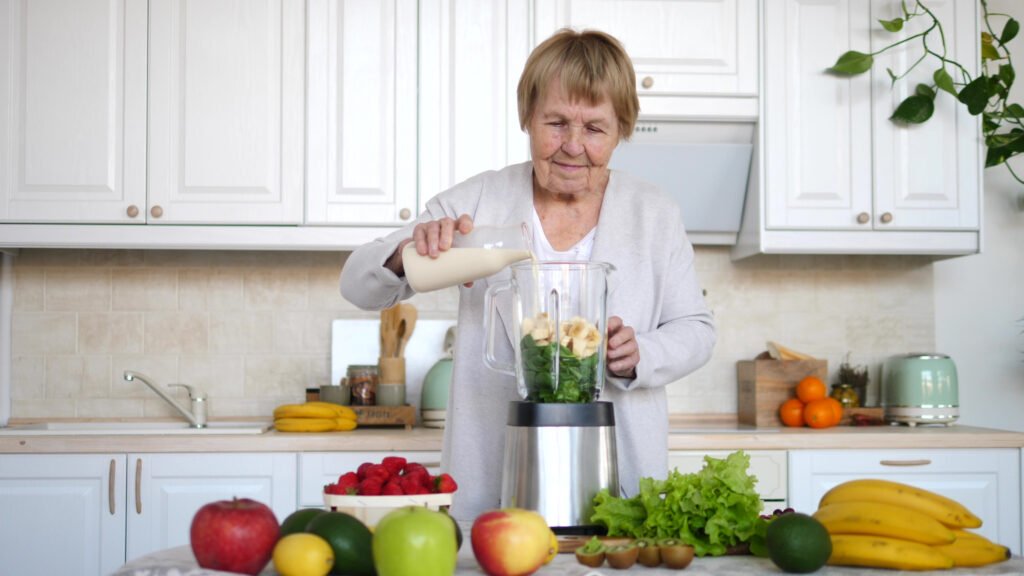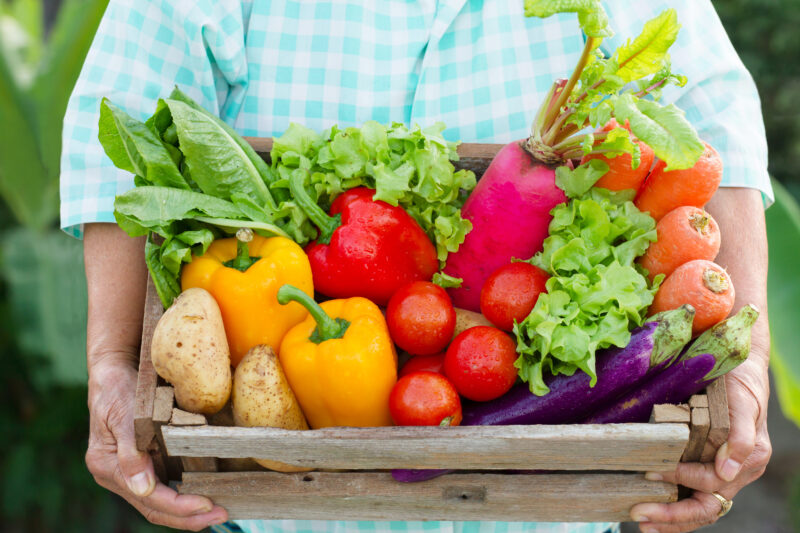The health benefits of plant-based diets are well-known: a lower risk of heart disease, lower blood pressure, weight loss. But is a plant-based diet a good choice for seniors?
The answer? It depends. While the health benefits of a plant-based diet have been documented through scientific studies, you need to be aware of some specific challenges that plant-based diets can pose to seniors.
What is a plant-based diet?
You may think a plant-based diet refers to a vegetarian or vegan diet, but there are some differences. Vegetarian or vegan diets are generally plant-based, but they’re based on the idea of eating no meat or animal products. This, however, leaves the door open for eating a variety of unhealthy, processed foods.
According to the National Kidney Foundation, a plant-based diet means “mostly whole grains, fresh fruits and vegetables, legumes (beans, peas and lentils), unsalted nuts, and healthy oils like olive oil. You also stay away from processed foods (certain canned foods and soups and packaged meats), refined grains (white bread, white rice), snack foods (potato chips, cookies) and sugar-sweetened beverages. Although meat, fish, poultry, and other animal products are allowed, they are eaten less often and only in small portions.”
Many people choose a vegetarian or vegan diet because of ethical or religious beliefs, while a plant-based diet is most often chosen for health reasons.
What are the benefits of a plant-based diet?
Plant-based diets offer a variety of health benefits. They increase the amount of omega-3 fatty acids and antioxidants in the blood while reducing the risk of heart disease and high blood pressure.
Another benefit of a plant-based diet is the reduced risk of developing type 2 diabetes. A 2017 study found that “diet and lifestyle, particularly plant-based diets, are effective tools for type 2 diabetes prevention and management.” The study goes on to say a plant-based diet reduces insulin resistance, promotes a healthy body weight, increases fiber and phytonutrients, and decreases saturated fat.
Plant-based diets have also been found to help improve sleep, lower cholesterol and reduce the risk of developing certain types of cancer.

What are the challenges of a plant-based diet?
Plant-based diets, however, can pose special challenges for seniors. Any time you eliminate certain foods from your diet, you lose the nutrients those foods provide. Eliminating most meat products from a senior’s diet can make it difficult for them to get enough of the nutrients they need, but you can lessen these effects by being aware of the deficits.
Plant-based diets for seniors need to be carefully designed so they include enough calories, protein, calcium and vitamin B12.
Calories
Plant-based foods often provide fewer calories than animal-based foods, which is great if your senior is trying to lose weight. However, for those not trying to lose weight, it’s important to make sure their diet includes enough calories to provide the energy they need to maintain their lifestyle.
Protein
Getting enough protein is especially important for seniors. As we age, we can begin to lose muscle mass and bone density. Protein helps maintain both.
For most people, animal products are a primary source of a protein in their diets. Reducing or eliminating animal products means you need to increase other protein sources like beans, nuts, grains and seeds.
Calcium
Many seniors already struggle to get enough calcium in their diets, which is important for healthy bones and teeth. If your loved one is trying a plant-based diet for the first time, be sure to encourage them to include plenty of leafy greens, almonds, figs, tofu and oranges.
B12
Ingesting enough B12 is important for the health of your blood and nerves. Unfortunately, B12 is only found in animal-based foods, which means an unenriched plant-based diet won’t provide what your senior needs.
B12-enriched cereals and milk can be a good source for this essential vitamin, but your senior might also need to take a daily supplement. Check with a doctor to determine the right dose.

What else should I consider?
Seniors should always check with a doctor before making drastic changes to their diet. Underlying conditions or current medications may mean a plant-based diet is not the best choice.
Switching from a diet that includes animal products to a plant-based one is a dramatic shift, which may be best undertaken gradually. Start by removing red meat then removing other meats like chicken and fish over time.
Developing a new habit takes time and help. One good way to get started and stay on track with a new diet is to follow a plan that includes tracking and encouragement. Diet apps like Noom, which uses proven psychology to help you stick to the plan, can be a useful tool to help your loved one make the switch.
As long as you keep the specific nutrient needs of seniors in mind, plant-based diets can be a great choice for older adults who want to reap the benefits of plant-based eating.

